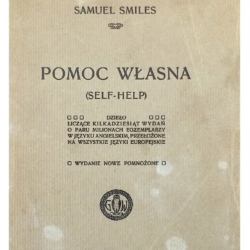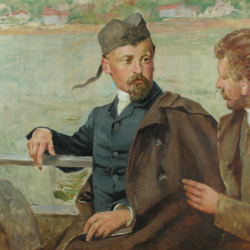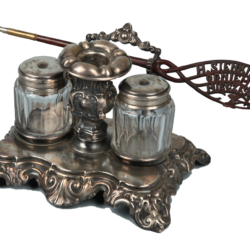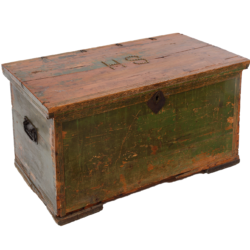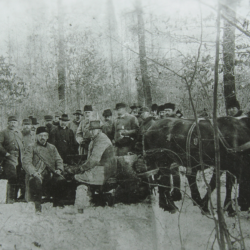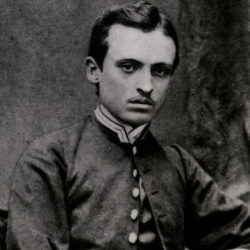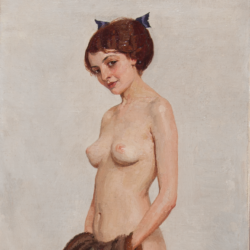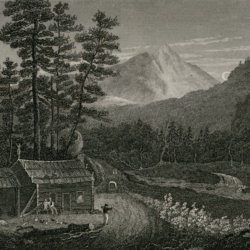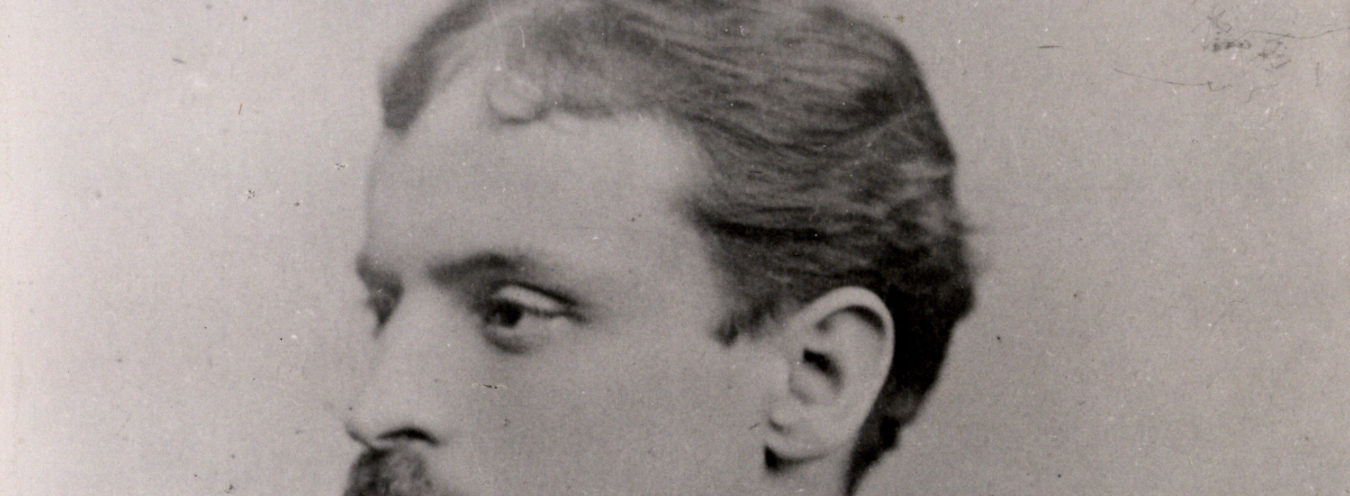
The Trip under the Banner of “Self-Help”
Self-Help; with Illustrations of Character, Conduct and Perseverance, a book by Samuel Smiles, enjoyed immense popularity in Europe, which can be confirmed by the by number of its translations, re-makes, and record-breaking editions. It found its way into the Polish language via its German translation by Jospeh Boyes – the translation which was a Germanized version of the original. The book was translated by a group of long-time collaborators of “Przegląd Tygodniowy” (“Weekly Review”), directed by Adam Wiślicki[1], the editor in chief, and the first edition was published in Warsaw, in 1867[2]. The translation was domesticated (Polonised) – Boyes’ text was enriched with an abundance of Polish examples and realities. Boyes had already added many German protagonists to Smiles’ text in order to appeal more effectively to the readers’ imagination, and even turned the author himself into one of the protagonists; his success was supposed to be the perfect illustration of his claims. Smiles’ “self-help”, translated as “one’s own-help”, is used here in at least two meanings: as self-development/ self-reliance and cooperation (affiliating)[3]. In his Listy z podróży do Ameryki (Letters from the Journey to America), Sienkiewicz uses this term in the context of the lynch law (“the capacity for self-help is in a way innate to the American people, and it is so strongly-grounded that even in the well-organized states, the government and the police find it difficult to stop the mob from lynching in more serious cases”[4]– p. 190) as well as in the context of the frequently praised American self-reliance:
[…] I prefer this Yankee republican vivacity together with all its abuses. […] the richness of inner life and self-reliance have already died in old Europe, and […] it is difficult to take there any unconstrained steps. Contrary, in America, self-reliance and vivacity are flourishing and growing powerfully. (p. 191, emphasis – A.B.)
Vivacity and perseverance, the virtues embodied by the idealized figures of the squatters, are the key notions in Smiles’ work, similarly to “manly character”[5]. Sienkiewicz openly writes about Americans: “There is no other nation in this world that would combine all the vices and virtues of a genuine manly character”, and an American individual is perceived in the following way:
In all respects, he is a tough man. He can love but not chirp; he can hate but not bite on the sly. He despises gossip, female garrulousness, embroidering scandalous news on the canvass of human honor.
In other words, even if Sienkiewicz did not travel around America with Self-Help as a travelling pocketbook, the ideals and values expressed in his texts of that time seem to have been shaped according to this model. The same is true of the projects sketched by other young positivists, who in their own lives had already tested and were disappointed by the traditional model of a “Polish man”, promoted by the nobility culture. Undoubtedly, it was “the book of the generation”[6]. Writing about the career of the “self-help” model in the generation of positivists, Ewa Paczoska concludes that it was “Smiles’ ‘self-made man’ that became the model of character, the shaping of which is supposed to depend on the work and perseverance of every individual as well as their ability to assess their chances in the world.”[7]
Przypisy
- Apart from Wiślicki, the translation was provided by Aleksander Kraushar, Józef Kirszrot, Jakub Szenwic, who replaced August Jeske, Wołody Skiba (Władysław Sabowski), and “an anonymous lady” who was identified as Matylda Okrętowa by Karol Estreicher, the author of Bibliografia polska XIX stulecia, [Polish Bibliography of the 19th Century] (see J. Kubicka, Na przełomie. Pozytywiści warszawscy i pomoc własna [At the Turning Point. Warsaw Positivists and Self-Help], Warsaw 2016, p.141). A more detailed analysis concerning the issue of the authorship of the translation can be found in B.Szleszyński, “Kto napisał „Pomoc własną” Samuela Smilesa?” [Who wrote Samuel Smiles’ Self-Help’?], in Etyka i literatura: pisarze polscy lat 1863–1918 w poszukiwaniu wzorców życia i sztuki [Ethics and Literature: Polish Writers of 1863-1918 in Search of the Models of Life and Art] eds. E. Ihnatowicz and E. Paczoska, Warsaw 2006.
- The second edition: 1868 Krakow; the third edition: 1879 Warsaw. Another translation, based on “the German translation by A. Colenfeld”, was published in Warsaw, in 1869. Later, other works of the English author were translated, and the great comeback of Self-Help in Poland took place before the First World War, when two other editions were published (Krakow-Warsaw 1908 and Warsaw 1912).
- For the 19th century readers, the phrase self-help became a catch-phrase, a slogan, which did not require explanation or commentary, but the exact understanding, which depended strongly on the context (J.Kubicka, op. cit., pp. 230-232).
- All quotations from Listy z podróży do Ameryki come from: H. Sienkiewicz, Listy z podróży do Ameryki [Letters from the Trip to America], Warsaw, 1988.
- A few characteristic quotations: “Hence energy of will may be defined to be the very central power of character in a man.” (S. Smiles, Self-Help; with Illustrations of Character, Conduct and Perseverance, Nashville, 1873, p. 248); “the honest earning and the frugal use of money are of the greatest importance. Rightly earned, it is the representative of patient industry and untiring effort, of temptation resisted, and hope rewarded; and rightly used, it affords indications of prudence, forethought and self-denial—the true basis of manly character.” (ibidem, p. 305); “The highest object of life we take to be, to form a manly character, and to work out the best development possible, of body and spirit—of mind, conscience, heart, and soul. This is the end: all else ought to be regarded but as the means.” (ibidem, p. 323).
- See J. Żadziłko-Sztachelska, “Czytanie” Smilesa” [Reading Smiles], in Książka pokolenia. W kręgu lektur polskich doby postyczniowej [The Book of the Generation: On the Most Influential Books in Poland after the January Rising], ed. E. Paczoska and J. Żadziłko-Sztachelska, Białystok 1994.
- E. Paczoska, Dojrzewanie, dojrzałość, niedojrzałość. Od Bolesława Prusa do Olgi Tokarczuk [Maturing, maturity and immaturity. From Bolesław Prus to Olga Tokarczuk], Warsaw 2004, p. 17 (the chapter “Ojcowie i dzieci: dojrzewanie w modelu ‘self-help’” [Fathers and Children: Growing Up in ‘Self-Help Model’).

